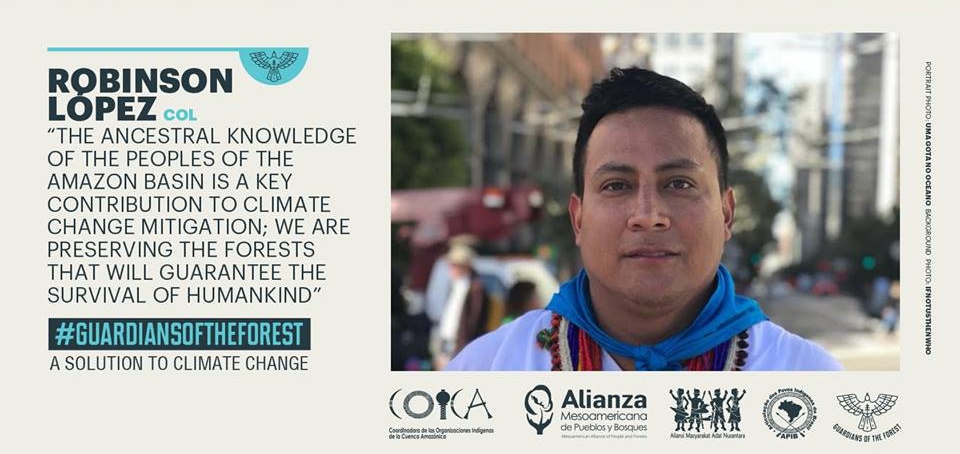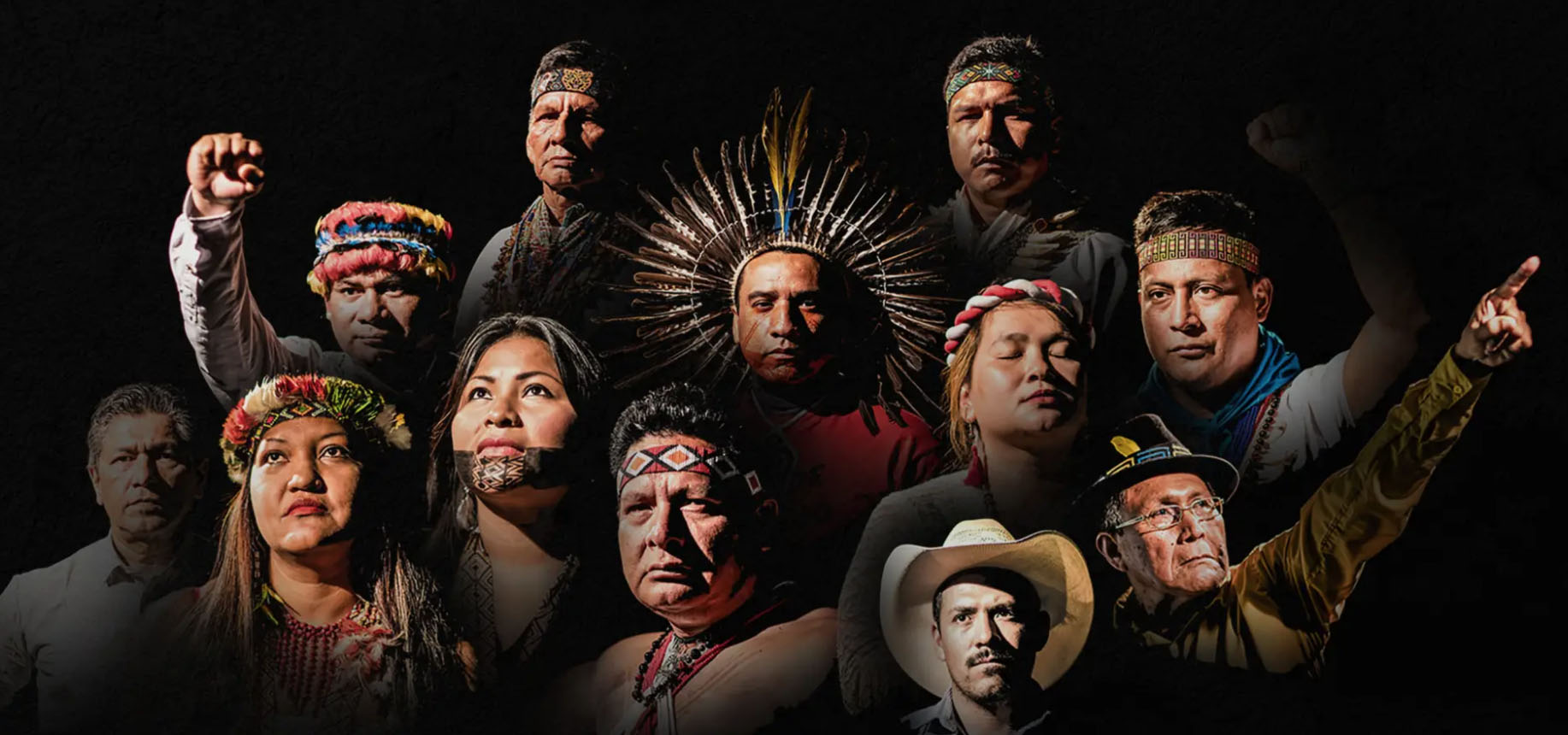Putumayo Harassed
2019 is not starting easy in the Amazon. This past week the leaders of the organizations affiliated to COICA (indigenous organization representing nine countries in Latin America) met in Quito and issued a statement In Defense Of Indigenous Amazon Defenders listing the threats faced for each of the countries that share and protect Amazonian territory.
Beyond the complex and recently intensified political context that prevails in those countries, the red alert is for Putumayo leaders in Colombia. On January 20 they received a notice from local paramilitary forces, threatening to kill more than 240 community leaders from that region and their families. Among the names is Robinson Lopez, activist and leader of COICA and OPIAC.
Putumayo sacred territory hosts many attractive resources for the oil and mining industry and the native peoples of that area are constantly invaded by extractive companies.
In spite of the constant requests from indigenous leaders, the Colombian State hasn’t replied and does not currently offer sufficient resources or mechanisms to face such threats produced by decades of armed conflict that, despite the Peace Agreements, has not been resolved.
Robinson has dedicated himself, since childhood, to work and serve his people, defending his territory and culture. As a recipient of ancestral wisdom, as a sustainable development professional, and as an activist leader he understands the situation clearly, “We believe that these [threats] come from several criminal gangs that operate in the Putumayo and in other regions of the country. These groups that call themselves Águilas Negras, are cells that survive from the ‘auodefensas’ of Colombia, we understand that they also call themselves in other ways. About them we all know that they operate around several sections or illicit activities that take place in Putumayo, for example, the cultivation for illicit use of the coca leaf, mining megaprojects, also around the exploration and exploitation of hydrocarbons, this is what these criminal gangs are financed from. At this time we have appealed to competent authorities such as the Ombudsman’s Office, the Attorney General’s Office, the Office of the Attorney General of the Nation, to investigate the origin of these threats, and to find those responsible… and to protect and defend the indigenous and social leaders who at the moment are being subjected to political persecution and being killed. Because there are already nine indigenous leaders killed in Colombia this year … and the situation is increasingly critical, more serious in the country.”
In its statement, COICA requests support to demand urgent government action to comply ‘with the United Nations Universal Declaration of Human Rights, The United Nations Declaration on the Rights of Indigenous Peoples, Indigenous and Tribal Peoples Convention of the ILO, to safeguard the life and existence of the indigenous peoples represented by their leaders through their own organizations”. A special request from Robinson Lopez is “to communicate and make visible this situation of violation of human rights and the International Humanitarian Law and to bring it up to the attention of all instances, agencies and sessions of the United Nations. For governments to speak out against the leaders’ criminalization happening in Colombia, and for the media to be objective in the visibility of this problem.”
By Thalia Castillo

